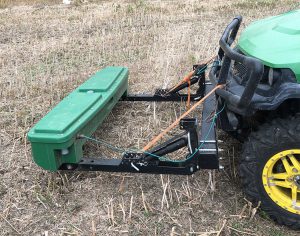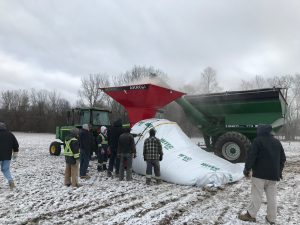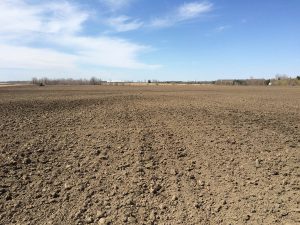Farm appraisal 101
CONVERSATIONS WITH BUSINESS EXPERTS

(J.M.) WHAT CIRCUMSTANCES REQUIRE A FARM APPRAISAL?
(B.W.) Farm appraisals are most often used for lending purposes. Banks and other lending institutions rely on an appraisal as a form of security to make sure they can get their loans back in the event of a default. Appraisals can also be used for family or business succession planning, taxes, and litigation situations such as divorce or a partnership dissolution.
Savvy farmers planning on making large purchases or capital investments will often have their farm or farm properties appraised in advance. This way, they, along with their lending institution, are prepared to make significant business decisions whenever they are presented, or for time sensitive closings.
HOW IS A FARM APPRAISAL CONDUCTED?
The first thing an appraiser looks at is the topography and layout of a farm property. We look for access, location to users, such as elevators, and drainage solutions to make sure there is an outlet for runoff or excess moisture.
One of our most important roles is to follow up with questions and research about a property that cannot be observed by the eye, such as finding out if the land has been tile drained, the history of crop rotation, and soil types. When evaluating a grain elevator operation, we would find out the age of the bins, dryers, and equipment, storage capacities, fuel used for drying or generators, and access to a sufficient power source. We would also examine the site to make sure it can be easily accessed, handle large machinery and trucks, and has a marketable ‘flow’ of operations for unloading, cleaning, drying, and shipping.
WHO IS QUALIFIED TO APPRAISE A FARM PROPERTY?
In most cases, the Canadian Revenue Agency and most banks will require appraisals to be completed by professionals belonging to professional associations including the Appraisal Institute of Canada (AIC) or the American Society of Farm Managers and Rural Appraisers. An AACI designation is the most common requirement for appraising farm properties in Ontario.
HOW IS A FARM APPRAISAL REPORT EVALUATED?
Appraisals can be lengthy, often a result of the guidelines in place to ensure consistency of work. There can be a lot of information to read through within a report, but the most important aspect is the analysis portion and the factors are included to assist in determining an estimated value. Choosing similar properties to comparable and making appropriate adjustments that impact value is paramount. When it comes to evaluating farm properties, you don’t need to adjust for things such as ‘how close the farm is to public transportation or good elementary schools’ because that isn’t really relevant to farmland values. Values should be estimated using relevant data that an experienced appraiser has access to, such as surrounding farmland values, the age and maintenance of buildings, and access to natural gas.
WHAT FACTORS IMPACT THE VALUE OF A FARM APPRAISAL?
Location is always important to value. Farm properties near large cash crop farms and livestock producers will yield the most competition and inflate the value. These are often located on or near prime farmland with optimal soil conditions for yield and returns.
The layout and topography of a farm is a factor. Farmers prefer large, open, flat fields that are free of creeks, tree and fence lines, and obstacles to drive around. Flatter fields also tend to have less run-off and erosion and take less fuel to work.
Drainage is important, and systematically tiled farms with an outlet source to reduce standing water and allow drier fields for earlier planting are most valuable.
Farm management is also a factor. While this is often the hardest component to appraise, we can look for common signs of building, field, fence row, and equipment management and maintenance. Things such as keeping bush areas trimmed back from the headlands so they don’t get in the way of equipment, proper crop rotations, picking rocks regularly, and replenishing soil nutrients with manure and fertilizers will ensure the best farmland value.
DOES AN APPRAISAL VALUE IMPACT A FARM’S PROPERTY TAX RATE?
No. An appraisal that is completed by an independent firm will not impact a property’s tax rate or assessed value unless a property owner is using the information in an appeal process. The Municipal Property Assessment Corporation (MPAC) use their own in-house assessors to determine the property value base and tax rates. Conducting a farm appraisal should not impact or result in any tax rate or tax assessment change. But, if a property owner is appealing an MPAC assessment or tax rate, private appraisals can be useful for providing a third-party opinion in arbitration or mediation circumstances. •



























